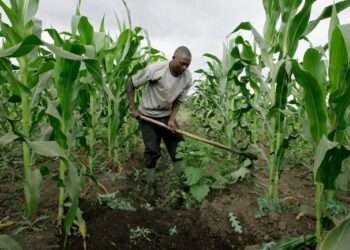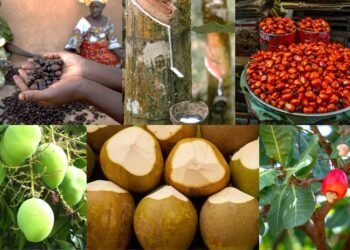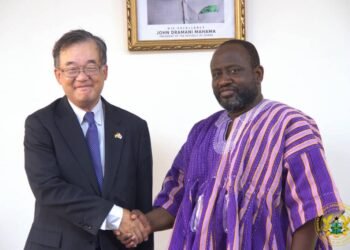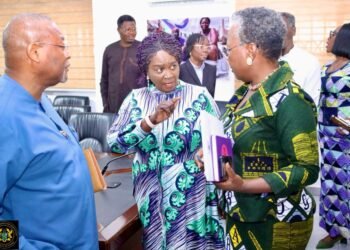Latest findings by six international civil society platforms have revealed that only about 10% of Ghana’s Cocoa Farmers are involved in sustainability programs. Moreover, the findings pointed out that some chocolate companies are failing to pay the living income differential meant to improve the wellbeing of farmers in Ghana and Cote d’Ivoire.
According to the survey, majority of the chocolate companies are only paying the base rate determined by the international market. They are not paying extra to support the living income of farmers. The survey revealed that many chocolate companies are not doing enough to improve the livelihood of cocoa farmers. Out of 60 chocolate companies sampled in the survey, only few scored high in the key indicators.
The joint survey was developed, completed, and published by Mighty Earth, Green America, INKOTA. Other partners are National Wildlife Federation, and Be Slavery Free (Australia and The Netherlands).
President Akufo-Addo announced the introduction of a $400 a tonne Living Income Differential for cocoa farmers last year. However, the Easter Scorecard, reveals that they are underpaying farmers in Ghana and Cote d’Ivoire. Mrs Sandra Kwabea Sarkwah, SEND GHANA Project Officer, said high living income, child labour, deforestation and climate, are among the key sustainability issues which needs to be addressed.
“I believe there is the need for retooling in the cocoa sector. With a common front, we will win the fight against unacceptable living income differential for farmers in Ghana and Cote D Ivoire.
“Ghana and Cote D Ivoire managed to get $400 dollars extra money as living income differential for farmers. However, we found out that these multinationals are trying to evade the payment of this extra income.”
Mrs Sandra Kwabea Sarkwah, SEND GHANA Project Officer
Launch of 2021 Easter Chocolate Scorecard
Speaking at the launch in Accra, Mr. Obed Owusu-Addai, the Managing Campaigner for EcoCare Ghana, noted cocoa production as a major driver of forest destruction.
According to him, Ghana and Cote D’Ivoire, being the largest cocoa producers in West Africa, have lost most of their forests. This has prompted several high-level discussions on the future of cocoa production in Ghana and Cote d’Ivoire, he added.
Furthermore, he explained that his outfit decided to localize the issues raised in the Easter Scorecard abroad. Thus, situating them within the context of current cocoa conversations in the country. He said the scorecard would help assess the activities of chocolate processing companies against indicators that are relevant to the ordinary cocoa farmer in the country.
‘’In the context of Ghana, we are looking at what things these companies are putting in place in their corporate document. Thus, ensuring that their footprint do not lead to further deforestation. And, how they are programming their activities to support local producers. In effect, to ensure that their supply chain does not have deforestation related cocoa beans.”
On his part, Mr Samuel Mawutor, Senior Advisor, Mighty Earth explained that the scorecard ranking reveals that the adoption of agroforestry and more climate-friendly farming practices is much slower than required.
Read also: Higher Prices necessary for Cocoa sustainability
Scorecard Ranking
The 2021 Easter Scorecard ranks and grades the performance of worldwide chocolate companies on key sustainability issues. The key sustainability issues are human rights due diligence, transparency and traceability, living income, child labour, deforestation and climate, and agro-forestry. The ‘Good Egg’ award goes to the three highest ranking companies and the ‘Rotten Egg’ award goes to non-performing companies.
The companies selected ranges from the largest cocoa traders and chocolate manufacturers in the industry to smaller innovative companies.
The ‘Good Egg’ award went to Alter Eco, a US-based company with distribution in the US and Europe.
Conversely, Storck, and 12 international subsidiaries received the lowest marks, the ‘Rotten Egg Award’ for lack of responsiveness and transparency.
Read also: Inflation expected to return to the target band in Q2 2021 –BOG























